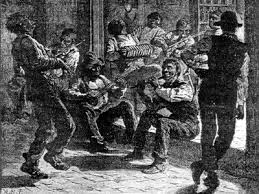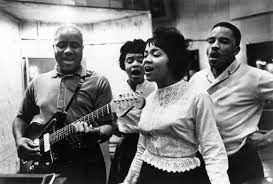The Role of Music in the Black Community
Enslaved Africans used music as a way to endure the stress and longevity of fieldwork during slavery. Music was a tool of expression for Black people that developed into a form of communication. Generation to generation, the passing of call and response songs, which came to be known as negro spirituals, strengthened African culture in the Americas by keeping it alive. Black music gave birth to many genres of music, including blues, jazz, gospel, disco, and others. The range of genres in Black music directly coincides with the nuances of Black experiences and creativity.


Black music originated with negro spirituals, which were the product of Christian influences in the lives of enslaved Africans and their unique way of worshipping. Initially, they sung in the fields, and over time, singing in the church. Genres like gospel and hymns developed. Specifically post-slavery, Black artists performed for audiences.
Black artists’ timbre stands out, especially in comparison to European-derived singing. Black voices are easily recognizable because of the texture and the emotion they add to their songs. While white artists produce calm and mellow inflections, Black music is famous for its range and ability to touch its audiences–mainly because songs can express deep feelings that conversation cannot always uncover. This distinct timbre also affects the way instruments act in music. Black musicians inject their emotions into the instruments and production of their songs, which connects layers of depth to their music.




